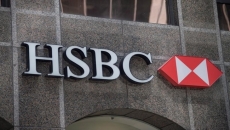A virtual signing ceremony on Thursday marks the start of a new relationship between the hereditary chiefs of the Wet'suwet'en Nation and the federal and B.C. governments after tumultuous gas pipeline protests earlier this year, say government leaders.
The hereditary chiefs who oppose Coastal GasLink's pipeline across their traditional territories are set to sign a memorandum of understanding with the two governments that was negotiated amid countrywide blockades, marches and encampments in February.
The memorandum does not address Wet'suwet'en opposition to the pipeline, which is part of a $40-billion liquefied natural gas export terminal project in Kitimat. But it states that the federal and B.C. governments recognize Wet'suwet'en rights and title are held under their system of governance.
It also places timelines over a 12-month period on negotiations affecting jurisdiction over land use planning, resources, water, wildlife, fish, and child and family wellness, among other things.
The office of Indigenous-Crown Relations Minister Carolyn Bennett released a statement Wednesday that said the agreement is an important step toward rebuilding the relationship with the Wet'suwet'en.
"It establishes a path forward for substantive discussions towards a final agreement describing future governance and the implementation of their rights and title," the statement said.
"It is a shared commitment to begin that work. Any agreement, once reached, would be taken back to all Wet'suwet'en people through a process that must clearly demonstrate the consent of the members of the nation."
The Wet'suwet'en hereditary chiefs released the document Tuesday ahead of it being signed on Thursday at different locations around the country.
Scott Fraser, B.C.'s minister of Indigenous relations and reconciliation, said the memorandum signals the start of a negotiating process.
"We have a lot of work ahead of us in recognizing and implementing Wet'suwet'en rights and title," Fraser said in a statement.
He said negotiations with the hereditary chiefs will include talks with elected Wet'suwet'en leaders, neighbouring Indigenous nations, local governments and others with an interest in what happens.
A spokesman for the hereditary chiefs could not be reached for comment on Wednesday.
The Wet'suwet'en are governed by both a traditional hereditary chief system and elected band councils.
Five elected Wet'suwet'en councils have signed agreements with Coastal Gaslink on the 670-kilometre natural gas pipeline through northern B.C. to Kitimat.
Several elected chiefs called for Bennett's resignation this week, arguing the process to arrive at the memorandum was unacceptable. They also asked the B.C. and federal governments to reject the memorandum and begin the negotiation process again with full participation from the elected leaders.
B.C. Premier John Horgan said B.C. has not sided with the hereditary chiefs by agreeing to sign an agreement that was not seen by the elected chiefs and councils until this week.
"What we do know is the Wet'suwet'en have to figure this out themselves," he told a news conference on Wednesday. "How they govern themselves is up to them."
In an interview, Indigenous law expert Mary Ellen Turpel-Lafond said the signing should be postponed to allow the Wet'suwet'en to sort out their governance issues and give the entire process more time.
"I understand it was produced in this cauldron of pressure with the Coastal GasLink protests, but what was touted as being this massive shift and fantastic agreement, now that we all see it, it's like, 'What?' " said Turpel-Lafond, director of the Indian Residential School History and Dialogue Centre at the University of British Columbia's law school.
"It's possibly going to saddle people with more conflict and deeper conflict."
She said the memorandum also appears to contradict B.C.'s adoption of the United Nations Declaration on the Rights of Indigenous Peoples by granting governing rights to the hereditary chiefs.






